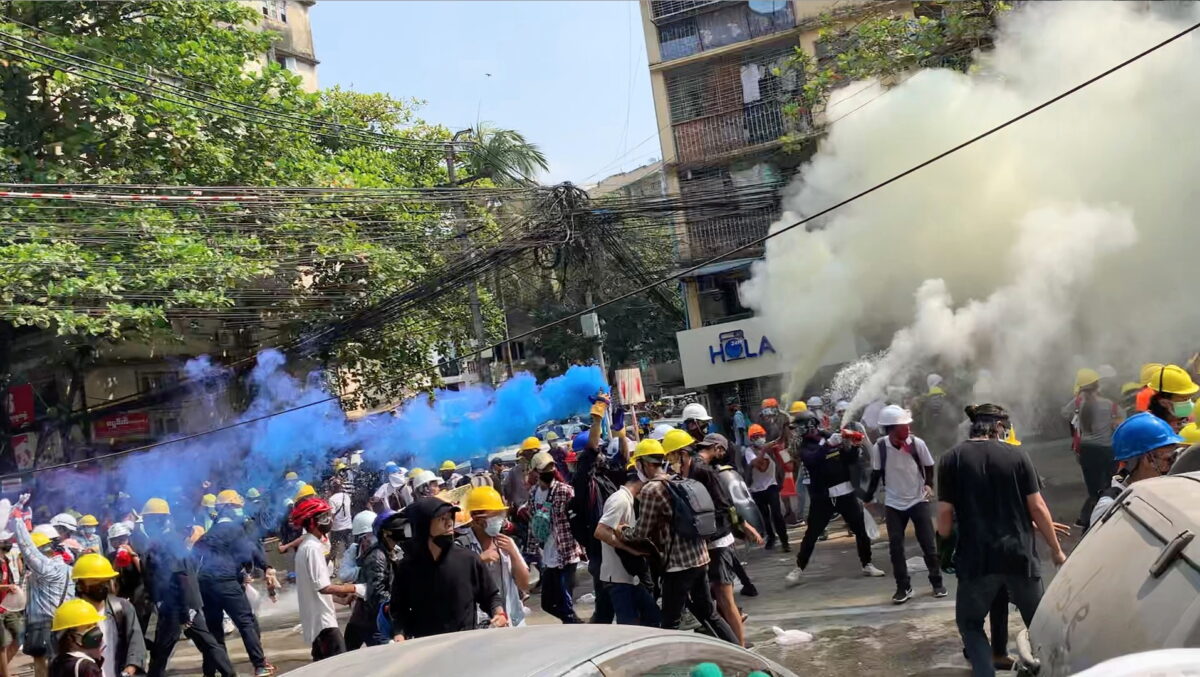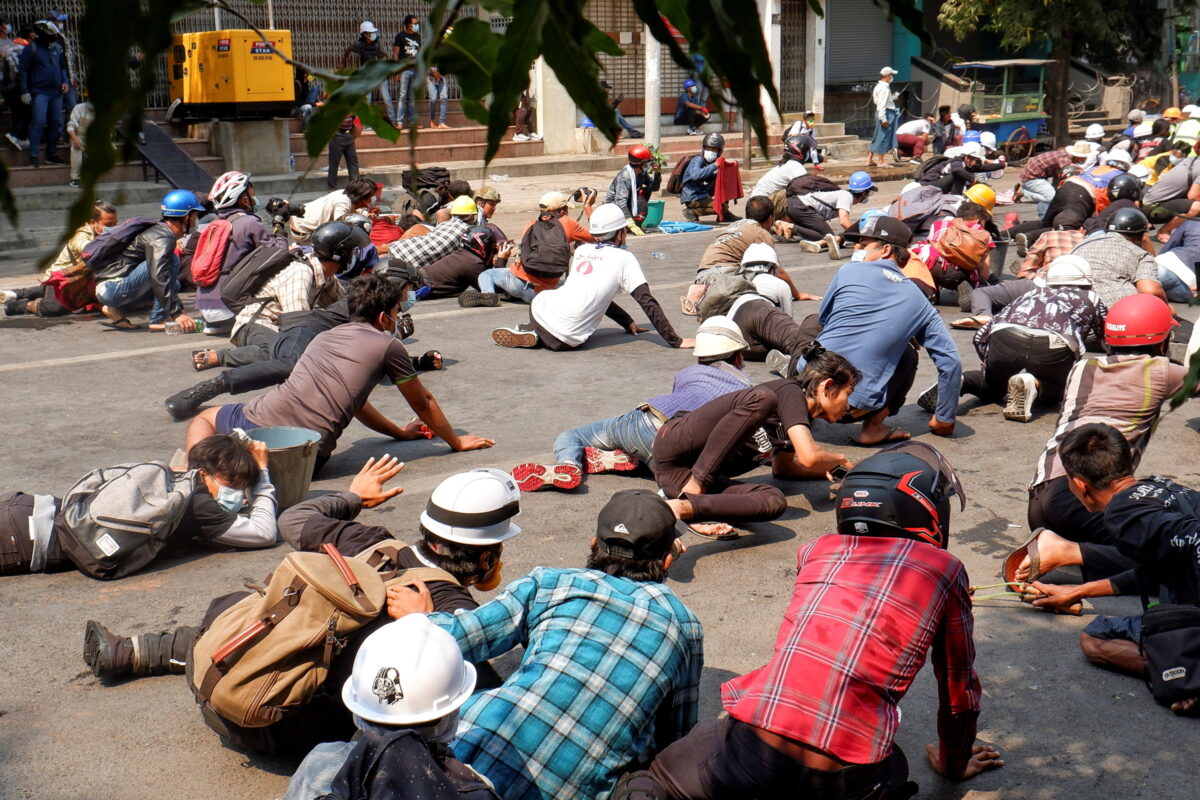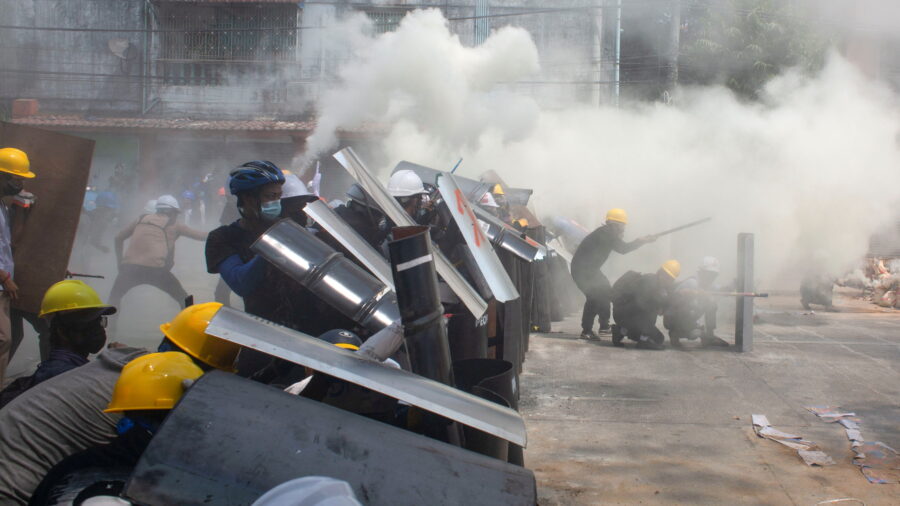Burma (also known as Myanmar) security forces opened fire on protests against the military rule on Wednesday, killing at least 18 people, a human rights group said, a day after neighboring countries called for restraint and offered to help Burma resolve the crisis.
The security forces resorted to live fire with little warning in several towns and cities, witnesses said, as the junta appeared more determined than ever to stamp out protests against the Feb. 1 coup that ousted the elected government of Aung San Suu Kyi.
“It’s horrific, it’s a massacre. No words can describe the situation and our feelings,” youth activist Thinzar Shunlei Yi told Reuters via a messaging app.
A spokesman for the ruling military council did not answer telephone calls seeking comment.
Ko Bo Kyi, joint secretary of the Assistance Association for Political Prisoners rights group, said in a post on Twitter: “As of now, so-called military killed at least 18.”

In the main city Yangon, witnesses said at least eight people were killed, one early in the day and seven others when security forces opened sustained fire with automatic weapons in a neighborhood in the north of the city in the early evening.
“I heard so much continuous firing. I lay down on the ground, they shot a lot,” protester Kaung Pyae Sone Tun, 23, told Reuters.
A protest leader in the community, Htut Paing, said the hospital there had told him seven people had been killed. Hospital administrators were not immediately available for comment.
Another heavy toll was in the central town of Monywa, where six people were killed, the Monywa Gazette reported.
Others were killed in various places including the second-biggest city Mandalay, the northern town of Hpakant, and the central town of Myingyan.
At least 40 people have been killed since the coup.
The violence came a day after foreign ministers from Southeast Asian neighbors urged restraint but failed to unite behind a call for the release of Suu Kyi and the restoration of democracy.
“The country is like Tiananmen Square in most of its major cities,” the Archbishop of Yangon, Cardinal Charles Maung Bo, said on Twitter, referring to the violent suppression of student-led protests in Beijing in 1989.
Burma is predominantly Buddhist but has small Christian communities.
Pope Francis, who visited Burma in 2017, said on Twitter: “Sad news of bloody clashes and loss of life … I appeal to the authorities involved that dialogue may prevail over repression.”
‘We Shall Overcome’

Security forces breaking up protests in Yangon detained about 300 protesters, the Myanmar Now news agency reported.
Video posted on social media showed lines of young men, hands on heads, filing into army trucks as police and soldiers stood guard. Reuters was unable to verify the footage.
Images of a 19-year-old woman, one of the two shot dead in Mandalay, showed her wearing a T-shirt that read “Everything will be OK.”
Police in Yangon ordered three medics out of an ambulance, shot up the windscreen, and then kicked and beat the workers with gun butts and batons, video broadcast by U.S.-funded Radio Free Asia showed. Reuters was unable to verify the video independently.
Democracy activist Esther Ze Naw told Reuters that the sacrifices of those who died would not be in vain.
“We shall overcome this and win,” she said.
On Tuesday, the Association of Southeast Asian Nations (ASEAN) failed to make a breakthrough in a virtual foreign ministers’ meeting on Burma.
While united in a call for restraint, only four members—Indonesia, Malaysia, the Philippines, and Singapore—called for the release of Suu Kyi and other detainees.
“We expressed ASEAN’s readiness to assist Burma in a positive, peaceful, and constructive manner,” the ASEAN chair, Brunei, said in a statement.
Burma’s state media said the military-appointed foreign minister, Wunna Maung Lwin, attended and “apprised the meeting of voting irregularities” in the November election.
The military justified the coup by saying its complaints of voter fraud in the Nov. 8 vote were ignored. Suu Kyi’s party won by a landslide, earning a second term.
The election commission said the vote was fair.
Junta leader Senior General Min Aung Hlaing has pledged to hold new elections but given no time frame.
Foreign firms should suspend all business in Burma to send a clear message to the military, Chris Sidoti, a former U.N. expert on the country, said.
Suu Kyi, 75, has been held incommunicado since the coup but appeared at a court hearing via video conferencing this week and looked in good health, a lawyer said.

